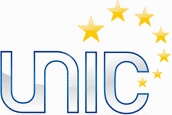
The main question that UNIC partners will try to address is:
"How can local economic communities based on traditional industries, and in particular ceramics, prosper in the rapidly changing, increasingly open global economy?"
In other words, the aim is to develop and encourage adequate policy responses, which help cities and their industries in a time of change and economic transition.
Reflections on the links between industrial heritage, economic development and innovation policies will be used as a starting point to establishing forward strategies and policy approaches. The valorisation of "traditional know-how", the support of new innovation initiatives and the work on a better match between heritage and innovation will be key topics.
The UNIC network is also designed to focus on re-inventing the image of ceramics cities and on reinforcing their "attractiveness" by offering good living conditions and professional development perspectives for more social cohesion at local level. In doing so, it shall not only contribute to the goals of the Lisbon and Gothenburg agendas, but also to the Union's social and economic cohesion objectives.
Five main topics clearly stand out as concentrating the majority of interests and needs from the partners, and where the UNIC partner cities intend to exchange experiences and good practices:
1. Promoting innovation in the ceramics sector (education and training, research and development, technology transfer, financing of innovation, etc.)
2. Strengthening the local ceramics industries (traditional industrial background, networking between companies and other local stakeholders, preservation of know-how, protection of intellectual property and labels, social policies to address redundancies, etc.)
3. Promoting ceramics traditions as drivers of urban renewal (renovation/regeneration of cultural and industrial heritage, illustration of ceramic on urban public space, initiatives towards local communities)
4. Valorising the cities' cultural heritage for tourism (creation of a dynamic connecting museums, cultural and tourist events, art and design stakeholders,...)
5. Strengthening urban ceramics identities (territorial marketing based on heritage/innovation tandem, "i-touch/hi-tech", upgrading the image of ceramic cities)
These 5 topics are addressed thoroughly through the establishment of working groups participated by the interested cities.
What motivates you to be part of the URBACT adventure ?
The UNIC network will enable us to find news means of actions in order to optimize the economic transition, from a former industrial-based economy, to a modern one promoting innovation and knowledge economy.
We also aim to initiate a lasting network of ceramics cities having common interest to defend their heritage and to support their local industries.
Who would you like to benefit from the work achieved in your project?
The first objective is to provide the partner cities with the opportunity to learn from each other about what really works in practice, to adapt the findings to their own context, and apply these to their own local action plans.
In a longer term, the sustainable network will create a framework for communities of ceramic cities, gathering all Project Partners and stakeholders from the Local Support Groups, but open to other interested cities as well. Indeed, the solutions we are testing could also be relevant for cities with links to other traditional sectors like textiles or furniture, and their message provides a clear ray of hope in difficult times. As Alain Rodet, the Mayor of Limoges said "We have still not explored all the possibilities open to us. But one of the keys for the future of our cities in Europe is to exploit the link between our economies, our culture and our heritage".
